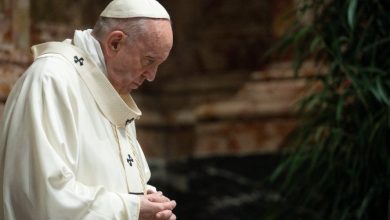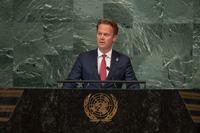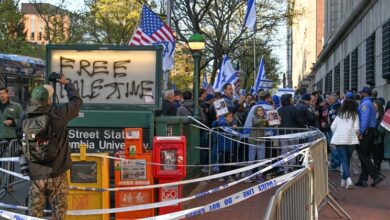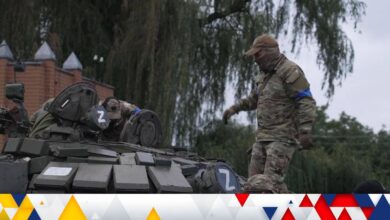Columbia University president resigns after Gaza protests turn chaotic
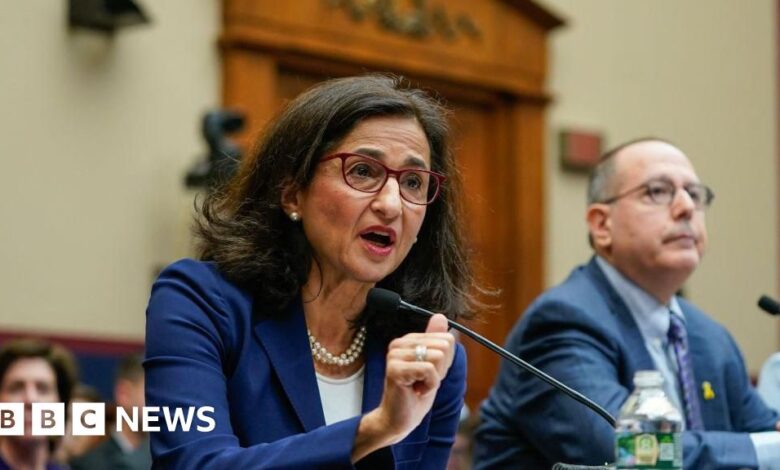
Columbia University President Minouche Shafik has resigned amid a free speech debate surrounding protests against the war in Gaza at the school.
Ms. Shafik resigned just a year after she took the position at the private Ivy League university in New York City, and just weeks before the fall semester began.
Ms. Shafik is now the third president of an Ivy League university to resign over the handling of war protests in Gaza.
In April, Ms. Shafik allowed New York Police Department officers to surround the campus, a controversial decision that led to the arrest of about 100 students occupying a university building.
The event marked the first mass arrests on Columbia’s campus since anti-Vietnam War protests more than five decades ago.
The move sparked protests at dozens of universities across the United States and Canada.
In an email to students and faculty on Wednesday, Ms Shafik wrote that she had witnessed “a tumultuous period where it was difficult to overcome differing views within our community”.
“This time has had a significant impact on my family, as well as others in our community.”
Katrina Armstrong, chief executive officer of Columbia University Irving Medical Center, will serve as interim president.
“Over the summer, I have been able to reflect and decide that my move at this time will help Columbia overcome the challenges ahead,” Ms. Shafik wrote in the letter.
“I have tried to walk a path of respecting academic principles and treating people with fairness and compassion,” she continued.
“It is heartbreaking — for the community, for me as president, and on a personal level — to see myself, my colleagues, and my students become the subject of threats and abuse.”
Student anger over Israel’s handling of the war against Hamas has raised tough questions for university leaders, who are grappling with fierce campus debates about what’s going on in the Middle East.
US universities have become flashpoints for anti-war protests in Gaza since Hamas attacked Israel on October 7 and Israel’s subsequent offensive into the Palestinian Gaza Strip.
Leaders from Harvard University, the University of Pennsylvania (UPenn) and the Massachusetts Institute of Technology all testified before the House Education and Workforce Committee.
The presidents of Harvard and UPenn eventually resigned after facing backlash over their handling of campus protests and congressional testimony, including their refusal to say that calling for the murder of Jews could violate university policy.
In April, Ms Shafik defended her school’s efforts to tackle anti-Semitism before Parliament, saying there had been a rise in such hatred on campus and the school was working to protect students.
Ms. Shafik is a respected Egyptian economist who has worked for the World Bank, the International Monetary Fund and the Bank of England.
She also previously served as principal of the London School of Economics.
Ms Shafik, who was knighted in 2015, was previously considered for the position of governor of the Bank of England, the BBC reported in 2019.
Her letter added that she had been asked by the UK Foreign Secretary to lead “a review of the government’s approach to international development and how to improve capacity”.
She wrote that the decision “allows me to return to the House of Lords and re-engage with the important legislative agenda being put forward by the new British government”.
Her resignation comes after three Columbia University presidents also resigned last week, after text messages showed the group used “anti-Semitic slurs” when discussing Jewish students.
The initial text exchanges were released by the Republican-led House Education and Workforce Committee in early July.
Congresswoman Virginia Foxx, chairwoman of the congressional committee, praised the decision of the three managers to resign.
“The time has come. Actions have consequences,” she said in a statement last Thursday, adding that the decision should have been made “months ago.”
“Instead, the university continues to send mixed signals,” she said, adding that the administration is allowing a dean who has not resigned to “slip under the radar without any real consequences.”
College campuses across the United States are preparing for the new school year, which will begin in a few weeks, as the conflict in Gaza continues.
On Tuesday, a California judge ruled that UCLA — which saw violent protests erupt on its campus in May — must prevent protesters from blocking Jewish students from entering campus.
Judge Mark Scarsi ruled that protesters had “set up checkpoints and required passersby to wear specific wristbands when passing through,” and blocked “those who support the existence of the state of Israel.”
“Jewish students were excluded from certain areas of the UCLA campus because they refused to renounce their faith,” Judge Scarsi wrote in the order. “This practice is so unthinkable and so abhorrent to our constitutional guarantee of religious liberty that it bears repeating.”
The school blamed outside agitators for setting up checkpoints and said it protested the ruling.
Hamas-led gunmen killed some 1,200 people in an attack on Israel on October 7, taking 251 others back to Gaza as hostages.
That attack sparked a major Israeli military offensive on Gaza and the current war.
According to the Hamas-run Gaza Health Ministry, at least 39,897 Palestinians have been killed in the Israeli campaign.
